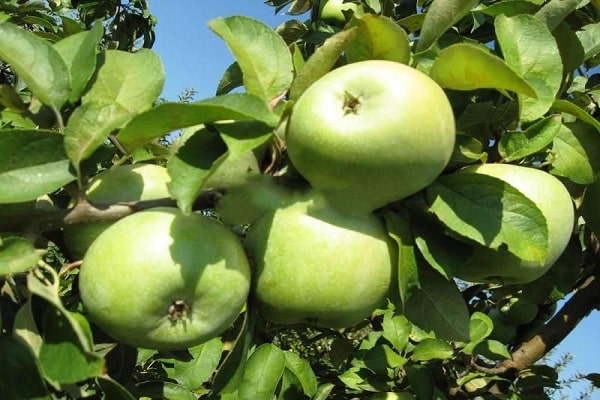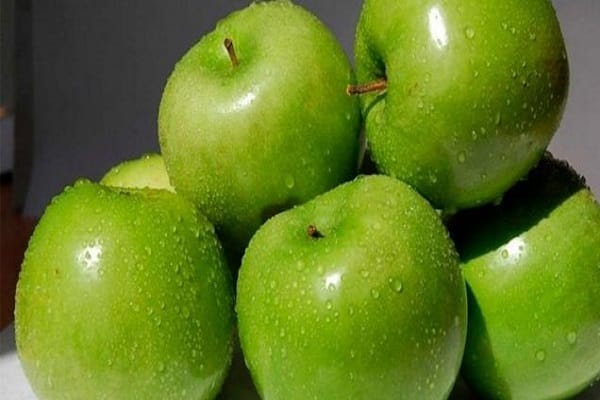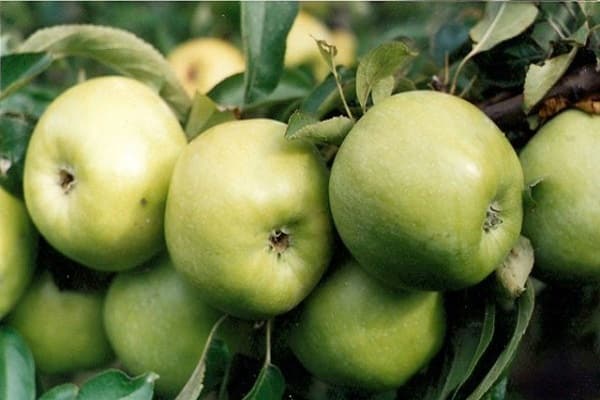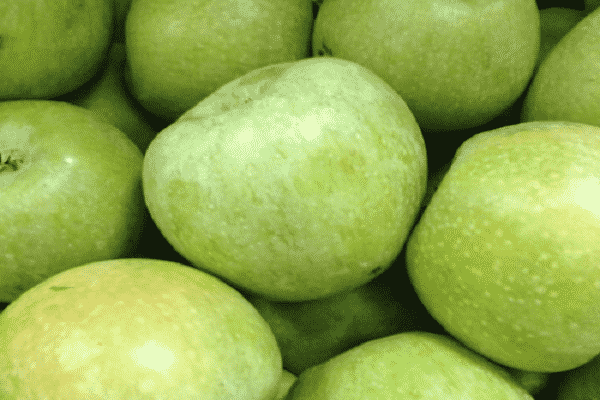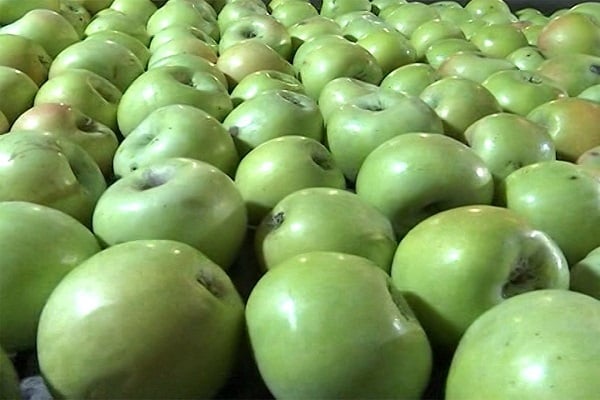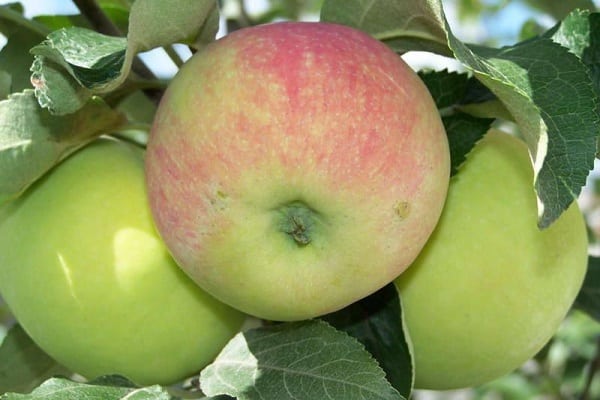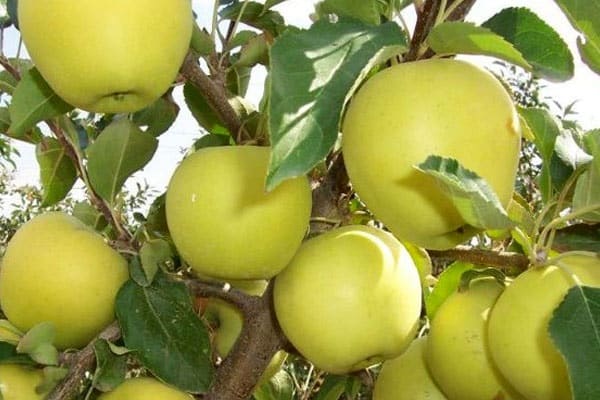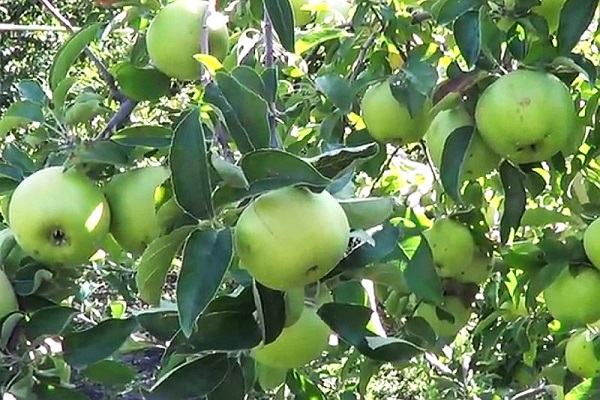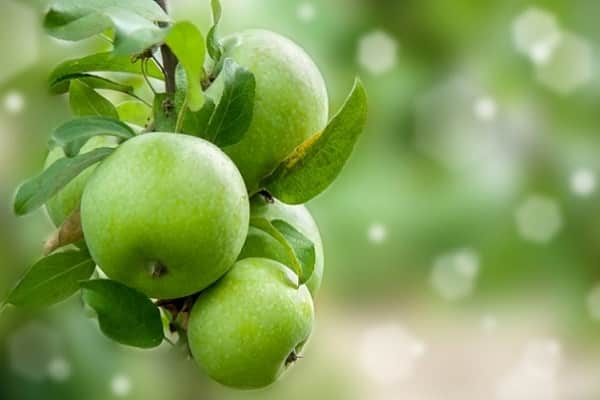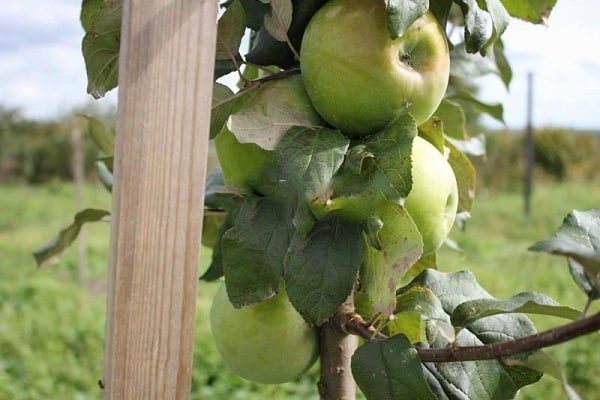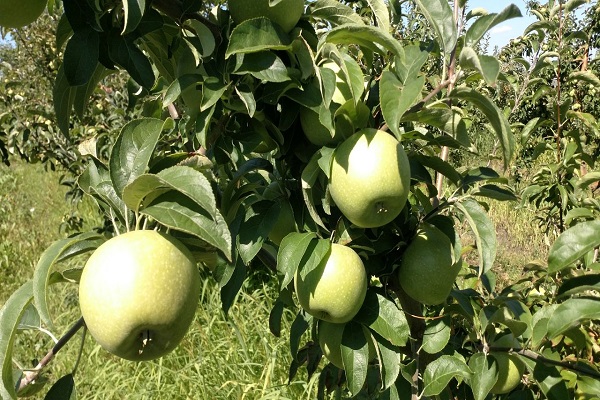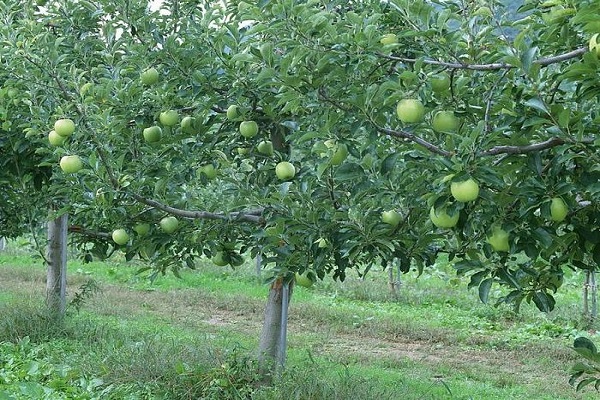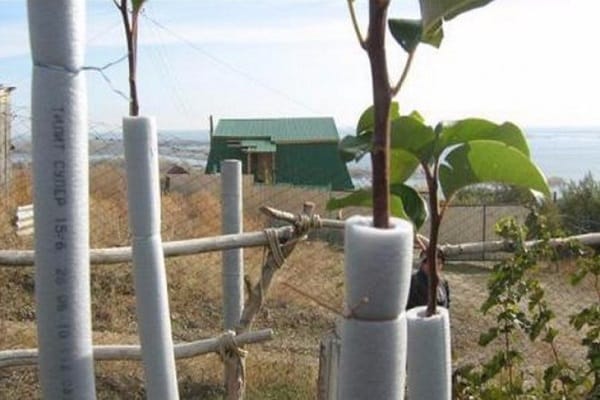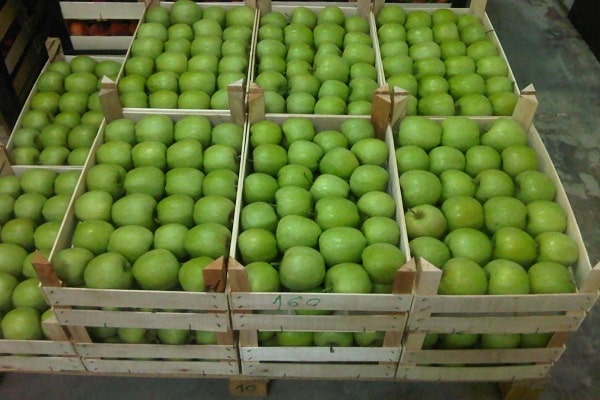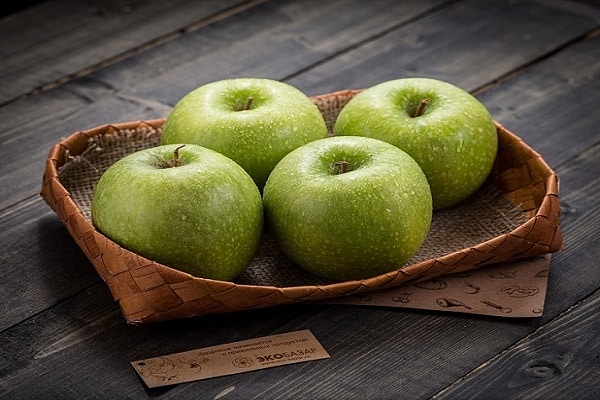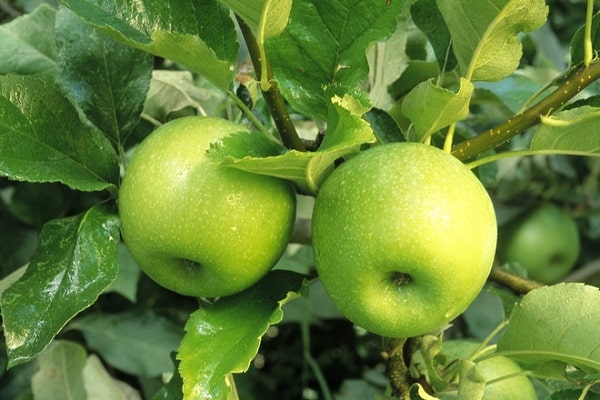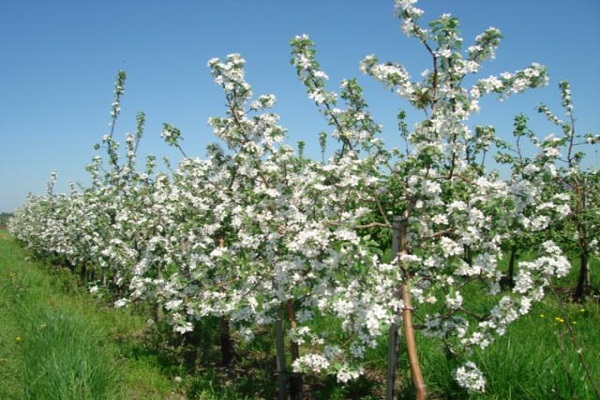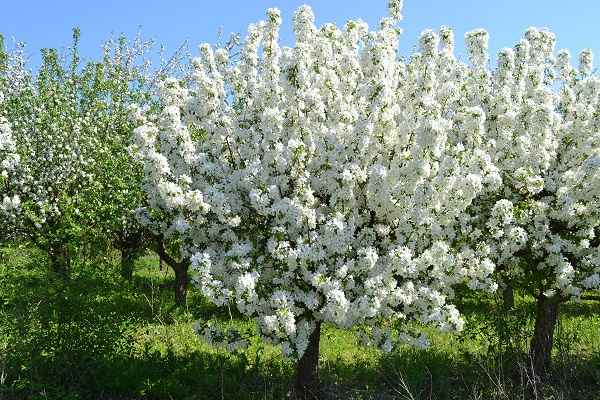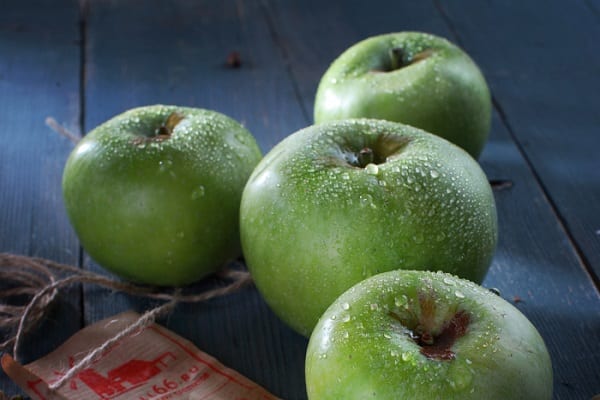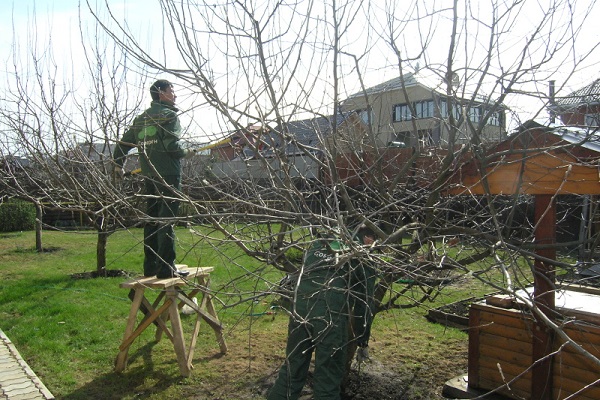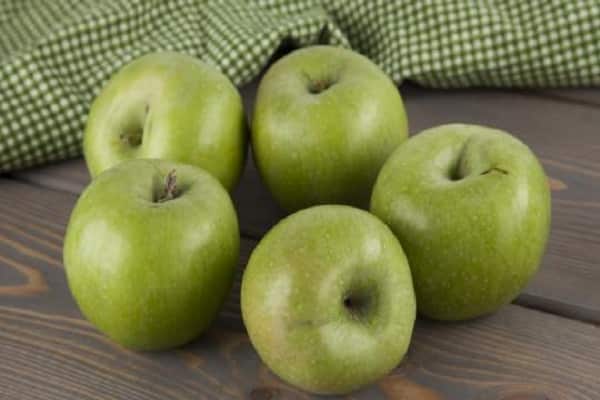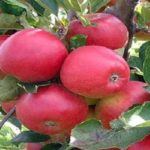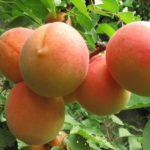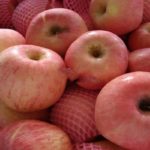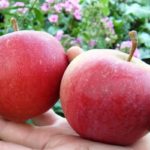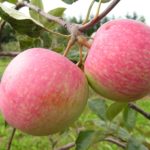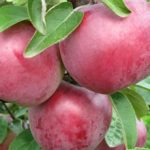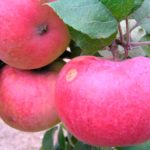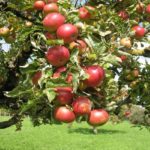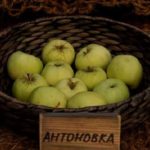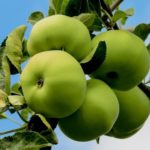The benefits of green apples for the human body have long been known. But not all varieties are tasty; often the dense structure of the fruits and the high acid content in them do not allow them to be enjoyed. But no one has ever refused Semerenko’s apples. They are included in the diet of young children and the elderly, especially since the fruits are a winter species. The variety is unpretentious and can be cultivated in a summer cottage.
- Fruits of the Semerenko apple tree
- History of origin of the variety
- General description of the variety
- Fruit characteristics
- Productivity
- Taste qualities
- Calorie content
- Benefits and harms
- Varieties and rootstocks
- Clonal or vigorous rootstock
- Semi-dwarf
- Dwarf
- Columnar
- Apple tree Renet
- Similarities and differences
- Rules for planting a fruit tree
- Planting season
- Selection of seedlings
- Tree planting site
- Preparatory work
- Disembarkation actions
- Tree care
- Irrigation
- Fertilizer
- Growth and shoots
- Trimming
- Preparing trees for winter
- Measures to increase yield
- Rejuvenation
- Disease and pest control
- Disease resistance
- Reasons for lack of harvest
- Reasons for slow tree growth
- Causes of barren flowers
- Dropping of unripe fruits
- Pests
- Diseases
- Harvest: collection and storage
- Precociousness
- Fruit storage
- Winter hardiness
- Regional characteristics of cultivation
Fruits of the Semerenko apple tree
Semerenko apples appeared a long time ago, so they became famous among consumers. They are valued for their taste and pleasant pulp structure. They have many benefits for all categories of the population.
History of origin of the variety
It is believed that the apple tree variety appeared in the 19th century, but it was described a little later - in the mid-20th century by the son of the author of the selection, Platon Semerenko. After this, the crop was included in the State Register of Fruit Crops. The history of the appearance of the apple tree is vague. Most likely, biologist Semerenko conducted experiments with pollination of known varieties and obtained a wonderful apple tree.
Another name of the variety is Renet Platon Semerenko. Although the surname is changed in the manner of Simirenko or Semirenko.
General description of the variety
The apple tree is a spreading tree with:
- dense crown in the shape of an inverted cauldron;
- straight shoots;
- trunk wood from dark gray to dark brown;
- oval leaves with an elongated and curly tip;
- white saucer-shaped flowers;
- green fruits.
The height of the tree most often reaches 2-3 meters. And the color of the bark changes depending on the illumination of the sun.
Fruit characteristics
The main value of horticultural crops is their fruits.The choice of variety for planting and cultivation depends on their quality. The Semerenko apple tree has different fruits:
- light green color of smooth skin;
- light-colored subcutaneous points;
- the pulp is juicy and tender;
- sweet taste with a small amount of acid;
- weighing from 150 to 200 grams.
As the fruits are stored in winter, they become yellow and the taste becomes richer.
Productivity
The apple tree begins to bear fruit in the 4-5th year of life. Apple yields increase as the tree matures, gradually reaching 100 kilograms per plant. But after 15 years of fruiting, the yield begins to decline.
Taste qualities
Apples contain up to 12% sugar. The amount of acid is 0.4-0.7%. The pulp is elastic and juicy, and thanks to the presence of sugars, it is sweet and gives off wine aromas. The taste of the fruit lasts for a long time, but the pulp becomes looser.
Calorie content
Apples contain the most carbohydrates. For those losing weight, it is useful to know that one apple contains no more than 44-37 calories.
Benefits and harms
To increase the amount of vitamins in winter and early spring, Semerenko apples are an indispensable product. Anyone who consumes green fruits constantly:
- strengthens the heart;
- normalizes the condition of blood vessels and the thyroid gland;
- improves appetite and functioning of the digestive tract;
- strengthens the skeletal system;
- protects yourself from flu and colds.
But you should eat green fruits with caution when your stomach is affected by gastritis or diabetes is diagnosed.. The acid in apples has a bad effect on tooth enamel, making it more sensitive.
Varieties and rootstocks
Semerenko apple tree seedlings are often obtained on rootstocks. It is imperative to know their characteristics in order to properly cultivate the crop.
Clonal or vigorous rootstock
This subspecies of apple tree is suitable for large gardens. The tree will be durable, reaching a height of 7 meters. A special feature is the average scrocity of the crop. The tree will bear its first fruits only 6-7 years after planting.
Semi-dwarf
The smaller the tree, the faster it ages. Semi-dwarfs have a lifespan of 40 years and a height of 4-5 meters. The subspecies of the variety is chosen by those who have small plots for a garden.
Dwarf
The rootstock has time to prepare for fruiting within 2-3 years. The tree is compact, reaches a height of 2-3 meters. The rootstock is valued for its unpretentiousness to care and growing conditions.
Columnar
The column-type apple tree looks even more compact. You can plant several specimens at a distance of 50 centimeters from each other. And a 2-meter tree bears a lot of fruit during the first 10-12 years of its life. But the subspecies is suitable only for gardeners in the southern regions, as it does not tolerate frost well.
Apple tree Renet
Created as a result of centuries-old selection, Renets are distinguished by a variety of varieties. Semerenko's apple tree is the same Renet, but created by a specific gardener. There are many other varieties with the same name. The Renet apple tree has round, slightly flattened fruits, and the flesh is dense. Apples are great for dessert because they contain more sugar than acid.
Similarities and differences
In addition to the appearance of apples and taste, the subspecies of the variety are similar in terms of ripening. They belong to the winter types of fruit crops. The only difference is in the growth of the tree and the splendor of the crown. Some species do not tolerate low temperatures well and have different immunity to disease.
Rules for planting a fruit tree
For different varieties of apple trees, the timing and rules of planting are the same. Although there are nuances of the procedure.So for the Semerenko variety, the composition of the soil and the chosen location in the garden are important.
Planting season
Depending on the climate, apple trees are planted in autumn or spring. For regions with cold weather, spring is better - the period before buds open. In the southern regions, where winter comes later, it is autumn. It is necessary for the tree to have time to get stronger and take root before frost. It will take him 3-4 weeks to do this.
Selection of seedlings
The tree needs 1-2 years of life to plant. The root system of the shoot should be without damage or swelling. It has 3-4 main roots with a network of suction roots. The bark on the trunk is smooth, without tubercles or swellings. A one-year-old shoot may not have branches, while a two-year-old shoot may have 2-3 branches.
Tree planting site
For an apple tree you need a place that is sunny, but protected from cold winds.. If groundwater lies at a level of 1.5 meters from the surface, then it is better to plant the tree on a hill. The variety requires nutritious and loose soil with a neutral acidity level.
Preparatory work
The area in the garden for seedlings is fertilized. Humus and mineral fertilizers are added per square meter. Then they dig up carefully. Work is carried out six months before planting. You can immediately prepare pits for apple trees. During this time, minerals are well absorbed by the soil.
Disembarkation actions
In each hole you need to add a bucket of humus and mineral fertilizers, after mixing them with the ground. A mound of fertile soil is poured onto the bottom of a hole that is 2/3 full. The prepared seedling is placed in the center, with the roots straightened, and a peg is stuck nearby. Then they continue to pour in the soil, periodically shaking the shoot.
When the earth settles evenly between the roots, press down the tree trunk circle with the soles of your feet.The root collar is left at ground level or slightly higher by 5-7 centimeters.
After planting, the tree needs plenty of moisture and the trunk is tied to a stake. The root circle is mulched with peat or humus.
Tree care
Fruit crops in the garden need careful care aimed at moistening and feeding the trees. The Semerenko apple tree, which has entered fruiting, requires the formation of a crown and periodic rejuvenation.
Irrigation
It is best to water apple trees in the furrows 4-5 times per season. In case of prolonged drought, the frequency of watering is increased, pouring up to 10 buckets of water under each tree.
Fertilizer
When apples begin to be harvested from the trees, be sure to apply basic fertilizer consisting of 3 kilograms of manure, 50 grams of superphosphate and 12 grams of potassium salt per square meter of garden before autumn digging. In spring, ammonium nitrate is needed, which is applied in an amount of 12-15 grams per 1 square meter before loosening the soil.
Fertilizing in the furrows is carried out with liquid mineral and organic fertilizers after flowering, during the period of fruit set.
Growth and shoots
With proper development of the apple tree, shoots appear annually. Growth reaches 50-60 centimeters when the tree is still young. It decreases in an adult plant to 45 centimeters. The shoots are covered with green-brown bark, with small and sparse lentils.
Trimming
In fruit-bearing plantings, they thin out the crown, cutting out whole branches that are sick, frozen, or broken. It is also necessary to trim those shoots that hang down or grow inside the crown. If the center of the crown remains in a thickened state, then underdeveloped branches can also be cut out.
Preparing trees for winter
For the winter, the Semerenko apple tree is covered where frosts are the most severe in winter. To do this, wrap the trunk with various materials in several layers.Young trees also need shelter in temperate climates. In winter, the trees are covered with snow.
Measures to increase yield
To increase apple yields, activities related to:
- timely feeding of trees after flowering with nitrogen and potassium, as well as mullein in a ratio of 1:5 or bird droppings - 1:12;
- removal of obsolete and unproductive fruit branches;
- thinning the thickened crown;
- cutting out wild growth on rootstocks.
Only constant care for apple trees will lead to abundant annual fruiting.
Rejuvenation
When the tree begins to bear fruit poorly, and the ends of the skeletal branches begin to dry out, it is necessary to carry out rejuvenating pruning. The skeletal branches of the 1st order are shortened by a third or half the length to the place where good tops have grown.
Disease and pest control
The Semerenko variety has many advantages. Its only drawback is that it is susceptible to diseases and pests. A gardener needs to be able to recognize the problem and deal with plant disease in a timely manner.
Disease resistance
The apple tree is moderately resistant to scab. But other infections, under favorable conditions, develop successfully and destroy the tree and crop.
Reasons for lack of harvest
If the apple tree does not bear fruit, then the reason for this may be that it changes the frequency of fruiting. For a young tree, the first fruits will appear in the 4-5th year of life, and for vigorous rootstocks even later, at 3 years.
Another thing that prevents fruiting is that:
- there is not enough iron in the garden soil;
- branches grow vertically;
- there is a lot of growth;
- the tree is sick or has been attacked by pests.
If the root collar is deeply buried during planting, then the apple harvest will also not be expected.
Reasons for slow tree growth
The tree's growth will slow down if it does not adapt in time after planting. An incorrectly selected location, when groundwater lies close to the surface of the earth, leads to rotting of the roots and stopping the growth of the tree. Pests also have a negative effect on the development of fruit crops.
Causes of barren flowers
Untimely falling of flowers without the formation of ovaries is due to the fact that during the flowering of the apple tree:
- there were severe frosts;
- pollination did not occur due to hot weather or heavy rainfall;
- treated the tree against pests or diseases.
You need to know that the first flowers do not always set fruit.
Dropping of unripe fruits
It's a shame when the fruits began to set, but quickly fell off. The reason for this may be the weakening of the tree due to freezing in winter. He does not have the strength to let the fruits ripen. Apples fall off unformed due to an attack on the tree by aphids or pathogenic fungi.
Pests
The codling moth damages the apple crop. Caterpillars eat holes in apples, and they quickly rot. The pest must be controlled by spraying with Karbofos 15-20 days after flowering.
Aphids are destroyed either with insecticidal preparations or by treating with an infusion of tobacco dust. Spider mites are afraid of onion peel infusion.
Diseases
Rarely, Semerenko's apple tree suffers from scab. The disease is recognized by spots on olive-colored leaves. The danger of infection is that it then attacks the apples, which become deformed and rot. Common infections of the variety include powdery mildew and cytosporosis. It is necessary to carry out disease prevention, which consists of pruning diseased shoots, treating wounds with garden varnish, and whitewashing tree trunks.
Harvest: collection and storage
To get a harvest from the Semerenko apple tree, it is necessary to ensure pollination of the variety. To do this, Antonovka, Renet Chernenko, and Granny Smith are planted nearby. If pollination was successful during the flowering of the apple trees, the fruits will set and ripen. When the time comes to pick apples, they are carefully removed from the fruit branches.
Precociousness
The variety begins to bear fruit in the 4-5th year of life. Then it produces harvests annually. But after reaching 25 years of age, the tree begins to produce apples periodically every 2 years. The harvest time comes at the end of September or beginning of October.
Fruit storage
A special feature of the Semerenko apple tree is that its fruits last for 8-9 months. At the same time, their quality does not deteriorate. Before bookmarking storing apples sort, rejecting wrinkled and damaged ones. No more than 15-20 kilograms of apples are placed in dry containers. Store them in a dark room at a temperature within +1…+2 degrees.
Winter hardiness
The tree does not tolerate low temperatures well. Therefore, it is not suitable for growing in regions with temperate and cold climates. Apples will not have time to ripen during a short summer with sudden temperature changes.
Regional characteristics of cultivation
The Semerenko apple tree is cultivated in the southern regions of Russia and Ukraine. You can grow it in the Central Black Earth regions. In the Urals, Siberia, and the middle zone, the tree will freeze regularly, losing part of its crown. Therefore, it makes no sense to plant a crop here.

